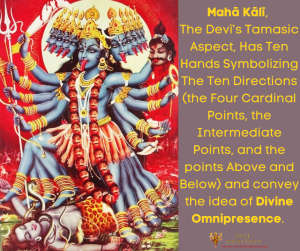
Maha Kali Has Ten Hands
Mahā Kālī, The Devī’s Tamasic Aspect, Has Ten Hands Symbolizing The Ten Directions (the Four Cardinal Points, the Intermediate Points, and the points Above and

Mahā Kālī, The Devī’s Tamasic Aspect, Has Ten Hands Symbolizing The Ten Directions (the Four Cardinal Points, the Intermediate Points, and the points Above and
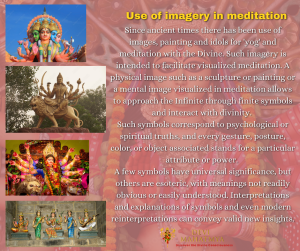
Since ancient times there has been use of images, painting and idols for ‘yog’ and meditation with the Divine. Such imagery is intended to facilitate
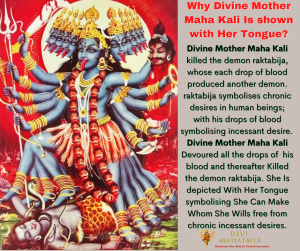
Divine Mother Maha Kali killed the demon raktabija, whose each drop of blood produced another demon. raktabija symbolises chronic desires in human beings; with his
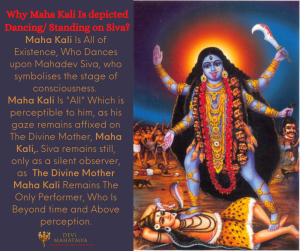
Maha Kali Is All of Existence, Who Dances upon Mahadev Siva, who symbolises the stage of consciousness.Maha Kali Is “All” Which is perceptible to him,
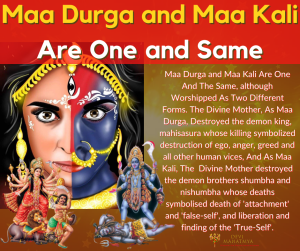
Maa Durga and Maa Kali Are One, although Worshipped in The Two Different Forms. Maa Durga destroyed the tyranny caused by the king of asuras,
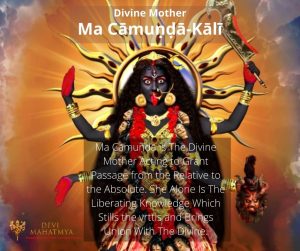
Chaturbhuja MahaKali or the Four Armed MahaKali has been best explained in the Markandeya Puran under Pradhanik Rahasyam as Part of the process of starting
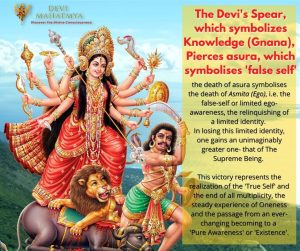
the death of asura symbolises the death of Asmita (Ego), i.e. the false-self or limited ego-awareness, the relinquishing of a limited identity.In losing this limited
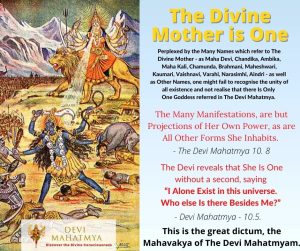
Perplexed by the Many Names which refer to The Divine Mother – as Maha Devi, Chandika, Ambika, Maha Kali, Chamunda, Brahmani, Maheshwari, Kaumari, Vaishnavi, Varahi,
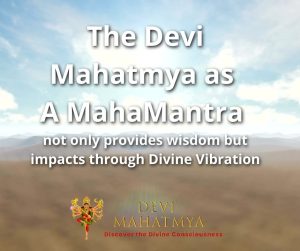
Though the “Devi Mahatmyam” constitutes chapters 81-93 in the Markandeya Purana, it is not merely treated as a part of a purana. Unlike the Purana
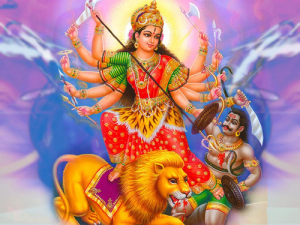
“The Devi’s Battle Sequence with the asura brothers is the inner conflict between The Boundless Self and the limited sense of self or the subjective